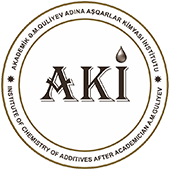Researchers from Hebei University of Science and Technology have developed an additive for asphalt that may keep roads ice-free and negate the need to spread salt on the surface.
Their formula involves mixing an acetate-based salt into the asphalt when it is made. These are less harmful than snow plows, which damage the road surface, or chloride salts, which corrode the cars that use it and damage surrounding vegetation and waterways. They are also more effective at lower temperatures.
A paper published in the ACS Omega journal explains that “anti-icing asphalt pavement” can play an “active and smart” role in continuous snow melting.
The process works by adding plastic microcapsule containing organic acetate salt mixed with blast-furnace slag to the asphalt. Normal use of the road causes the pellets’ polymer coating to weaken over time, releasing the salt into the asphalt.
The theory was tested on a section of road on a highway between Beijing and Xiong’an. Here it was found that the treated pavement lowered the freezing point of water to –21°C, and kept the road free of snow and ice.
The researchers note: “The test section was paved in May 2021, and snow arrived at the end of 2021 and 2022 … The roads with and without SMAA had a significant contrast effect with anti-icing performance, and the follow-up performance monitoring of the road section continues. In light snow weather, there is almost no need for auxiliary snow removal operations, and the road itself actively melts the snow and ice on the pavement.”
The downside of the system is that eventually the asphalt loses its anti-icing properties. The researchers estimate that a 500mm-thick pavement would be active for around seven or eight years.
https://www.globalconstructionreview.com/chinese-researchers-develop-self-deicing-asphalt/


